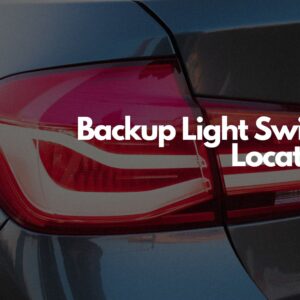If you’re looking for a way to customize your ride or improve its aesthetics, underglow lights can be a viable option. These lights installed under the chassis of your car can create a striking visual effect that can enhance your ride’s appearance.
But here’s the important question, is this kind of customization legal? Let’s find out.
Are Underglow Lights Legal?
It depends on which state you’re in. Nine US states have strict laws that prohibit underglow lights for cars. These states are Connecticut, Illinois, Maine, Massachusetts, Michigan, Minnesota, Pennsylvania, Virginia, and Washington.
If you don’t live in these nine states, you may be allowed to use underglow lights. However, most states still have some restrictions on using these lights.

In Arizona, for instance, underglow car lights are generally allowed. However, you will have to stick with amber or white lights without glare on the side of your vehicle. In Kansas, you’re allowed to use ground lighting. However, you must refrain from using flashing lights and red lights with visible neon tubes.
Underglow light restrictions can vary per state. Generally, there are stricter regulations in states with more cities and heavier traffic.
If you’re planning to get a car underglow kit, make sure to check the regulations in your state. You can visit your Department of Motor Vehicle (DMV) website for more information.
Common Underglow Light Restrictions to Know About
Even if the restrictions regarding the use of underglow lights can vary depending on your location, some rules are common across most states.
Use of Blue, Red, and Green Lights
The use of blue, red, or green underglow lights is not allowed in most states. That’s because your car might be mistaken for an ambulance or a law enforcement vehicle. These colors are usually associated with emergency vehicles.
You may be allowed to use these colors in some states. However, you’ll have to turn them off when driving on public roads.
Installing Rotating and Flashing Lights
Rotating and flashing lights may seem fun, but installing them on a car can present a safety hazard.
These lights can distract other drivers and increase the risk of collisions while on the road. Using flashing underglow lights can even be more distracting at night because it can interfere with other drivers’ night vision.
What Will Happen If I Don’t Comply With These Underglow Restrictions?
Take note that an underglow lighting violation is a civil infraction. So expect to pay a fine if you don’t follow the rules that apply in your state.
You can be issued a citation for an illegal vehicle modification in the form of a “fix-it” ticket. You can rectify this violation by confirming to a police officer that the issue is already corrected.
If a driver doesn’t want to admit fault, there will be a formal or informal hearing depending on the specifications of the case.

If the driver fails to respond to the ticket or does not appear in court, the court can issue a default judgment. This means that the court will rule in favor of the party that issued the ticket even without the driver’s input. Depending on the specific situation, this can lead to additional fines and a driver’s license suspension.
Do the Rules on Underglow Lights Still Apply If I’m Driving On Private Property?
Yes, some underglow light restrictions can still apply even when your car is on private property. There can still be laws and ordinances specific to the community or property where you plan to drive your vehicle.
Here are some factors that can affect the legality of vehicle lighting on private properties:
Nuisance Laws
Nuisance laws can be enforced within your city or community. These laws aim to prevent actions that cause harm or disturbance to individuals in a specific community. So if you’re driving your car with overly bright underglow lights, you can be disturbing the neighborhood, possibly violating a nuisance law in your city or community.
Zoning and Land Use Regulations
The zoning and land use regulations in your area can also include rules that regulate outdoor lighting. This can cover the underglow lights on your vehicle. In some areas, there can be specific rules about the color of lights you can put on private property. There can also be rules regarding the light’s intensity.
So before you buy underglow lights, research the zoning and land use regulations that apply to your area.
Residential Community Regulations
If you live in gated communities or townhome developments, check the rules and restrictions on vehicle lighting. Some HOAs impose restrictions regarding vehicle lighting, especially in shared spaces like a parking lot.
Other Automotive Light Modification Options You Can Try
Here are some other automotive light modifications you can try to customize your car’s look:
Interior LED Lighting
These LED lights can light up your ride’s interior during night drives. These lights can come in various colors, enhancing your interior’s aesthetics.
Accent Lighting
You can also try custom accent lighting. These lights are installed to accentuate a specific area of your car. Some examples of accent lighting include halo headlights and wheel lighting.
LED Light Bars
Installed at the rear of your vehicle, this light accessory illuminates the area behind your vehicle when the reverse gear is engaged. These lights are particularly helpful in low-light conditions.
Aside from the options mentioned above, there are a lot of other options on the market when it comes to automotive light modifications and accessories. Just like underglow lights, it’s important to check if these lights are legal in your area before using them.
Any information provided on this Website is for informational purposes only and is not intended to replace consultation with a professional mechanic. The accuracy and timeliness of the information may change from the time of publication.















